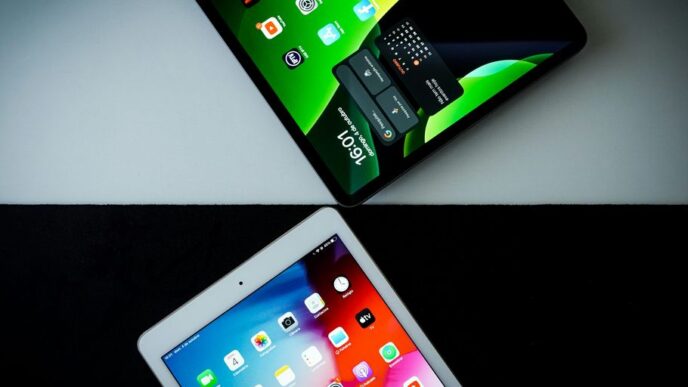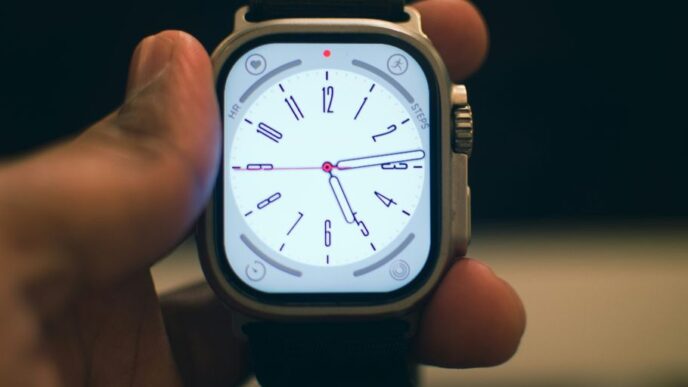Throughout history, revolutionary innovations have shaped and transformed our sonic landscape, from vinyl records to digital streaming. Join us on a fascinating journey of exploration as we peel back the layers of this mesmerizing soundscape, uncovering the hidden meanings behind the evolution of music technology. Whether you’re a dedicated audiophile or simply curious about how these advancements impact our musical experiences, this blog post serves as your backstage pass to understanding and appreciating the magic that lies within each beat, note, and melody. So grab your headphones and prepare for an immersive experience like no other as we unveil the secrets behind the enchanting realm of music technology!
Introduction
Music technology refers to the utilization of technology in the world of music. It encompasses a wide range of activities, from creating and recording music to its distribution and consumption. Music technology has revolutionized the music industry, leaving a profound impact on how we experience and interact with music.
The invention of recorded sound stands as one of the most significant developments in music technology. Recording devices like phonographs and tape machines allowed musicians to capture their performances and share them with a broader audience. The development of multitrack recording and mixing technologies enabled producers to create intricate sonic landscapes, shaping the sound of popular music.
Digital technology has had a transformative effect on music. The advent of digital audio and MIDI (Musical Instrument Digital Interface) has granted musicians the ability to create and manipulate sounds with unprecedented precision. Samplers and synthesizers have given birth to new music genres such as hip-hop and electronic dance music. Today, digital technology is integrated into every stage of the music-making process, from composition and performance to recording, mixing, and distribution.
Moreover, the internet has had a profound impact on the music industry. Online platforms like iTunes and Spotify have revolutionized the way people consume music, making it more accessible than ever to access a vast library of tunes with a simple click. Social media has provided new marketing channels, enabling artists to connect directly with their fans. Streaming services like Netflix have even presented alternative models for how people listen to music.
Exploring Different Types of Music Technology
Music technology encompasses a wide range of topics, spanning from the history of musical instruments to the latest digital audio workstations. In between, numerous sub-topics emerge, each offering unique challenges and opportunities. Here’s a brief overview of some key areas within music technology:
Musical instrument design and manufacture: This field covers a broad spectrum, including traditional acoustic instruments like guitars and pianos as well as electronic instruments like synthesizers and drum machines.
Music recording and production encompass both the technical aspects of recording music (e.g., microphones, mixing consoles, and digital audio workstations) and the creative aspects (e.g., track arrangement, effects integration, and mixing).
Music notation and composition: This area involves writing music using standard notation and utilizing computer-based composition tools to create new musical pieces.
Music performance: Utilizing various technologies to enhance or augment live musical performances, such as sensors to track movement and triggering pre-recorded sounds based on specific actions.
Applications of Music Technology
The music industry has always been at the forefront of technological innovation, readily embracing new technologies, from Edison’s phonograph to the digital age. Music technology finds applications in various domains, including music creation and recording, live performances, and sound design. In the studio, music producers and engineers utilize music technology to create and shape sounds. DJs and musicians leverage music technology to enhance their live performances. Sound designers in film and video games utilize music technology to create immersive soundscapes.
Music technology has become an essential tool for anyone working with sound, be it musicians, producers, engineers, DJs, or sound designers. Understanding how to utilize music technology can elevate one’s craft to the next level.
How Music Technology Has Transformed Listening and Music Creation
With the increasing popularity of digital music, it comes as no surprise that music technology has transformed the way we listen to and create music. Today, we can enjoy our favorite tunes anytime and anywhere, thanks to portable devices like smartphones and MP3 players. Sophisticated software programs like Ableton Live and Pro Tools empower us to create professional-sounding tracks without even needing a full band!
However, not everyone is enamored by these changes. Some purists argue that digital music lacks the warmth and personality of analog recordings. Others worry that the convenience of music technology has made us passive listeners, content to hit “shuffle” and let our songs play in the background without truly engaging with them.
Whether you love or have reservations about how music technology has shaped the industry, there’s no denying its significant impact on our musical experiences. How has technology changed your relationship with music? We’d love to hear your thoughts.
Examining the Pros and Cons of Music Technology
When it comes to music technology, there are advantages and disadvantages to consider. On the one hand, music technology enables the creation of new and innovative sounds that would otherwise be impossible to produce. This often leads to more interesting and experimental music that pushes the boundaries of what is musically achievable. On the other hand, some purists argue that the use of music technology detracts from the natural expressiveness of music, resulting in a colder and more clinical sound. Ultimately, it is up to the artist to decide whether to incorporate music technology into their work, and there is no definitive right or wrong answer.
Conclusion
Music technology has revolutionized the way we perceive and experience sound, granting us the power to create new sounds and explore uncharted sonic territories. By understanding the significance of music technology, we gain insight into how it shapes our sonic encounters, enabling us to truly appreciate its power and potential. As the field continues to evolve, it will be thrilling to witness new innovations that push the boundaries of what’s possible in terms of crafting immersive musical experiences.













